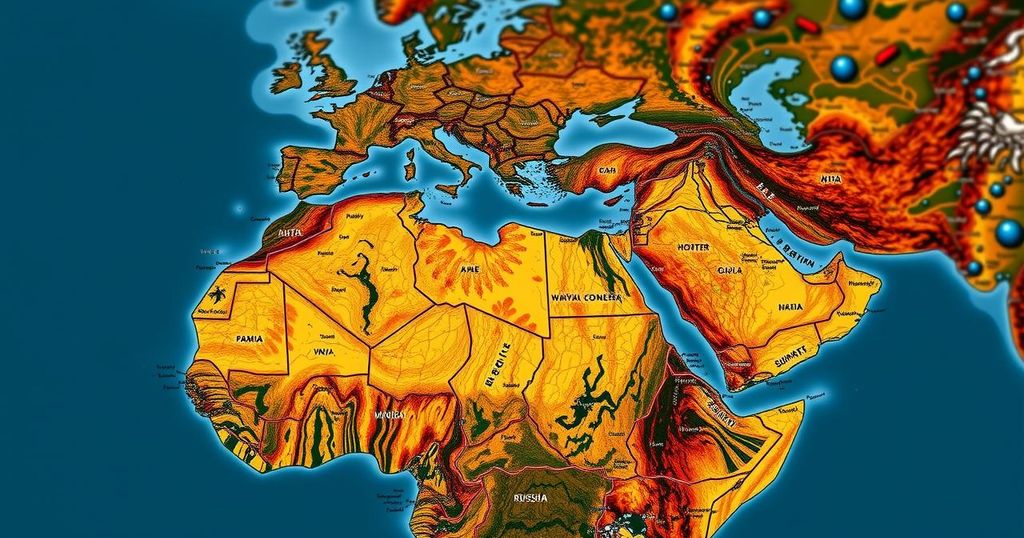Russia has recently deployed about 200 military instructors to Equatorial Guinea to ensure the security of President Teodoro Obiang’s regime. This move is part of a larger strategy by Moscow to extend its influence in West Africa, amidst diminishing Western engagement. The instructors are training elite guards in key cities, reflecting a growing trend of Russian military presence on the continent despite earlier setbacks in Mali.
Recent reports indicate that Russia has stationed approximately 200 military instructors in Equatorial Guinea with the intent to bolster the defense surrounding President Teodoro Obiang, who has ruled since a coup in 1979. This deployment signifies a continued expansion of Russian influence in West Africa despite setbacks in other regions, particularly Mali. The instructors are reportedly engaging in the training of elite presidential guards across the country’s major cities, indicating an effort to solidify the ruling regime amidst a backdrop of declining Western presence. The apparent influx of Russian military personnel aligns with a broader trend of increasing Russian intervention in West and Central Africa, where Moscow has been actively involved in supporting various military regimes and combating local insurgencies. This strategy not only serves to secure lucrative governmental contracts but also facilitates Russia’s geopolitical maneuvers against the West amid tensions highlighted by the ongoing situation in Ukraine. Equatorial Guinea, a small nation with a population of approximately 1.7 million and significant oil reserves, attracts foreign investments, notably from U.S. energy companies. However, recent years have seen a reduction in American engagement as domestic oil production rises. President Obiang’s regime continues to navigate a precarious landscape, having survived numerous coup attempts, particularly a notable one in 2004 that involved mercenary forces.
The deployment of Russian military instructors in Equatorial Guinea emerges amidst a shifting landscape in West Africa, characterized by decreasing Western influence and increasing engagements by Moscow. The country has strategically aligned with Russia to reinforce its defense mechanisms and economic stability, particularly following extensive foreign investments from the U.S. in the early 2000s. However, with domestic energy production improving in the U.S., the nation’s previous leverage has diminished, leading Obiang to seek external military support. This context is further complicated by the efforts of private military contractors, such as Wagner, and the rise of the Kremlin-controlled Africa Corps, which take a more direct role in African conflicts after the casualties previously suffered in Mali.
The presence of Russian military instructors in Equatorial Guinea highlights Russia’s opportunistic strategy of expanding its influence in Africa at the expense of declining Western authority. The arrangement not only aims to safeguard President Obiang’s regime but also facilitates broader geopolitical goals set against Western nations. As Russia continues to deepen its military and economic ties in the region, the implications for regional stability and Western interests remain significant.
Original Source: www.usnews.com






